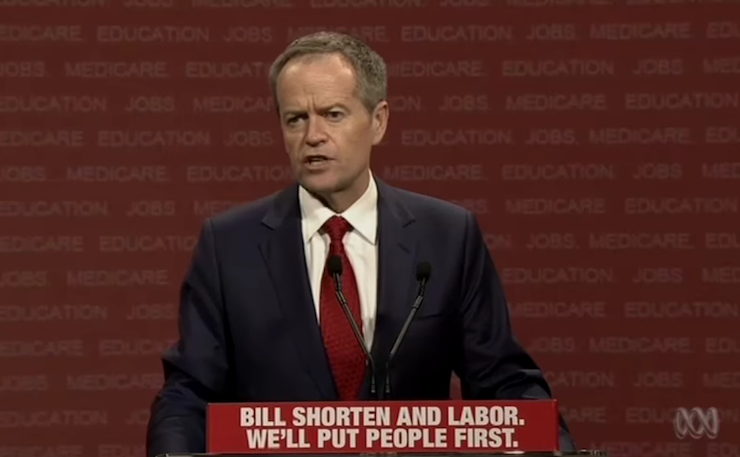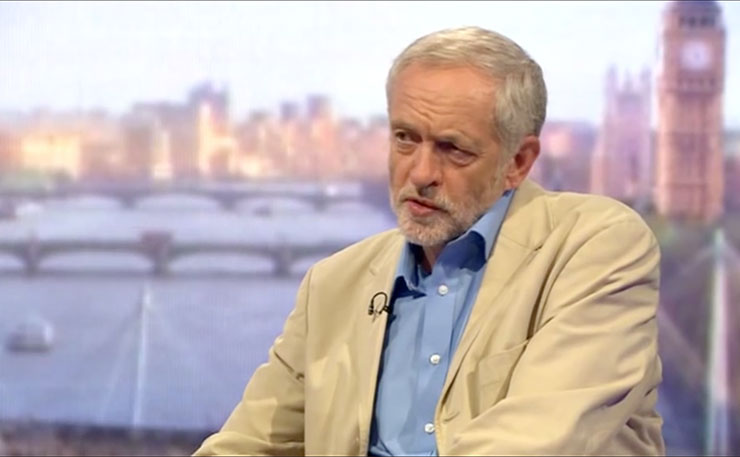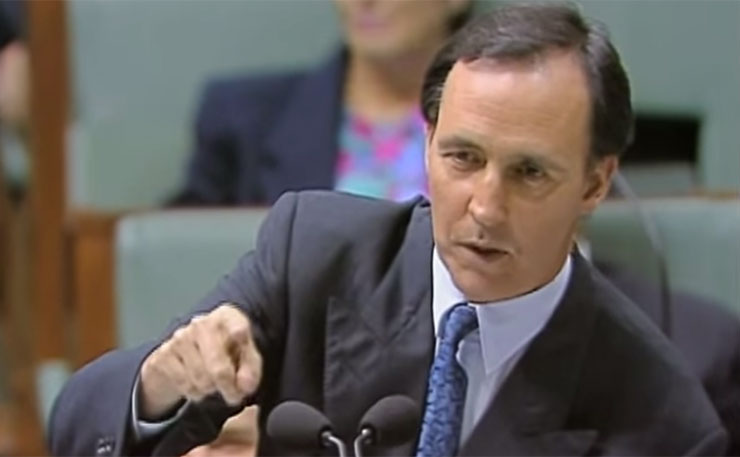As more and more people grow tired of neoliberalism, Geoff Davies looks at the features of a system that pretends to govern.
No, not discovering and not mis-governing, dis-governing: deliberately disrupting the governance of Australia, in the same way that disinformation is the deliberate spreading of false information.
You would never guess Australia is a very fortunate country in a very fortunate situation if you listened only to the ragings and prattlings of the political mainstream. We have abundant resources, innovative, educated and diverse people, diverse land, a still-reasonable climate and no significant threats. We ought, indeed, to be relaxed and comfortable, and we can easily afford to ensure nobody is in serious want.
We can easily afford to be tolerant, compassionate and considered in how we deal with each other and the world. We can make a good and honest living for ourselves without ruining the land or begging foreigners to do it for us.
Instead we are in a lather of fear about a small number of helpless refugees who might show up on our inhospitable northern shores, even as we ship in small floods of immigrants to our crowded cities, at great cost and inconvenience.
We fear a smaller number of radicals, both pro- and anti-Islam, that we incite through our folly. We are divided and acrimonious. We have poor and dispossessed, we fear for our jobs and our future, and we seem to think the country is in dire straits.
Our leadership must take much of the responsibility for this. For much of Australia’s short history our leadership has been second rate, as Donald Horne argued, lacking courage and vision, more interested in serving the powerful at home and abroad.
Lately the parties have become so inward-looking, so pre-occupied with gaining and holding power, so farcical in their machinations that their performance in government has been third rate.

However there is also a new influence at work. Our governments are not just incompetent, not just corrupt, not just obsessed with power for personal gratification. Behind the farce is a simple agenda that is not commonly perceived, recognised or named.
Disgovernance is not the same as corruption, though that is a major scourge. That there is corruption in our political system has been increasingly obvious for some time. Not just Joh’s mysterious paper bags of money. Not just NSW Labor’s venality around mining leases. No, the system is corrupted. How else to explain the major parties’ dedication to fossil fuels, that damage local environments and the planet, against the clear wish of the people for a rapid transition to clean energy? Or their obsession with flogging off public assets, especially electricity assets, against the general wish and concerted resistance. Or a dozen other ways in which the clear popular will is ignored or thwarted.
Nor is disgovernance the same as incompetence, which is also a major scourge. That the dominant neoliberal ideology is failing has also been obvious for some time, though only to those with eyes to see. Unrestrained markets commonly malfunction. Deregulated financial markets brought us the Global Financial Crisis and the consequent Great Recession that mires much of the world. We avoided the latter fate through a rare episode of good governance in 2008, but the perpetrators have been pilloried ever since for deviating from the received doctrines.
The competitive grocery retailing sector has yielded a duopoly that is destroying our primary industries and domestic processors and suppliers through its relentless quest for unsustainably lower prices on supermarket shelves. It promotes alcoholism and gambling for profit, it is heavily into hardware, clothing, “variety” and petrol retailing and it is even moving into finance. The retailing sector is not supposed to be dominated by a couple of corporate giants, but our nominal masters in politics and the media seem to be unperturbed, if not oblivious.
Thus unrestrained competition commonly eliminates competitors and leads to exploitation and profiteering, contrary to prevailing doctrines. Many other examples of markets malfunctioning can be readily identified. Another key example is banking competition, which led to excessive and reckless lending in the 1980s, feeding a boom and the subsequent deep “recession we had to have” of the early 1990s.
We can add political instability to the measure of neoliberalism’s incompetence. The inequality and the disempowerment generated by neoliberalism is generating reactionary political backlashes, such as the Brexit vote and support for Donald Trump and Pauline Hanson, along with the more constructive movements of Bernie Sanders and Jeremy Corbyn.

Historically the mismanagement and corruption of democratic systems has led to dictatorship, such as Mussolini’s fascism, or plutocracy, such as in the Gilded Age in the USA. There are elements of both in our present situation. The political class (including media) are playing to the wishes of the wealthy, hence plutocracy, and ignoring the wishes of the people, hence dictatorship.
Yet the objective today is not so much to take control of our governance as to remove the means of governance. This is evident in the neoliberal ideology and in actions of the players.
Neoliberalism comprises two strands, one economic, one political. The economic strand is free-market fundamentalism, based on the neoclassical stream of economic thought. It has no basis in sensible theory, and its record discredits it, but the point here is simply to recognise its nature. It argues for economic anarchy, for a lack of rules, for a lack of governance. It does so in the misguided belief that markets are self-regulating, and that self-regulated markets result in optimal economic efficiency.
The political strand of neoliberalism is libertarianism, the belief we should be able to do as we like, except we should not impinge on someone else’s liberty, and except for military defence, police and upholding property rights. It is rather naive about the feasibility of not impinging on someone else, except in the fantasy of a frontier society that never existed. It is utterly naive about human beings’ intrinsically and intensely social nature, manifest in language and shared culture, and in the repertoire of behaviours that promote the cohesion of our perceived community of “us”.

So libertarianism advocates confining governance to supporting private enterprise and otherwise doing away with government. This is consistent with Friedrich Hayek’s claim that we ought to and will evolve to interact only through transactions, and we will leave behind such evolutionarily backward traits as empathy and altruism.
When neoliberals talk about “small government”, this is what they mean. So forget about public schools, hospitals, broadcasting, roads, sewerage, forget about supporting cultural activities, even sport, forget about supporting higher education, history, science and the rest. Forget about legal services for the poor, or offering a helping hand to those struggling with a raw deal for whatever reason, you’re being evolutionarily backward.
Reagan and the Bushies in the US, the Tories in the UK and Howard, Abbott and his clone in Oz have, quietly or noisily, hacked away at the budgets of all these things. They employ a simple strategy to sell this approach politically: cut taxes on the rich, claiming this will generate “jobs and growth”, then cut public services under the imperative of “budget repair”.
The sad and tragic thing is the nominally left parties, NZ Labour, Oz Labor, UK Labour, the US Democrats, joined in, even led the way. Brain dead. Thanks a lot Roger Douglas, Paul Keating, Tony Blair and Bill Clinton.

Few seem to perceive the simple underlying strategy and goal of neoliberalism. It is to remove the means of governance from everything except those things that enable private enterprise. It is to promote anarchy in most parts of our society.
If that objective were stated up front and repeated every day, then this commentary would be called “Anarchy”. They do not broadcast this goal every day, even though it is spelt out by the Institute of Public Affairs. Instead they go through the motions of governing, even as they don’t govern (or fail to govern, in the case of Turnbull) or they remove the means to govern.
It is not just that the budget and role of government are being reduced. Civil rights, human rights and the democratic process are being undermined and have already declined.
The democratic process is undermined by corrupt funding of parties and by limiting the information flow essential for democracy. Commercial media automatically limit the information they pass on, and the ABC is increasingly run by Liberal Party plants.
To date we still have a relatively independent electoral commission (especially compared with the US) but funding cuts will be having their effect.
So neoliberalism acts against governance, but it does so while pretending to govern. It is not just against many actions of government, it subverts the process of governance. It practices disgovernance.
Donate To New Matilda
New Matilda is a small, independent media outlet. We survive through reader contributions, and never losing a lawsuit. If you got something from this article, giving something back helps us to continue speaking truth to power. Every little bit counts.





